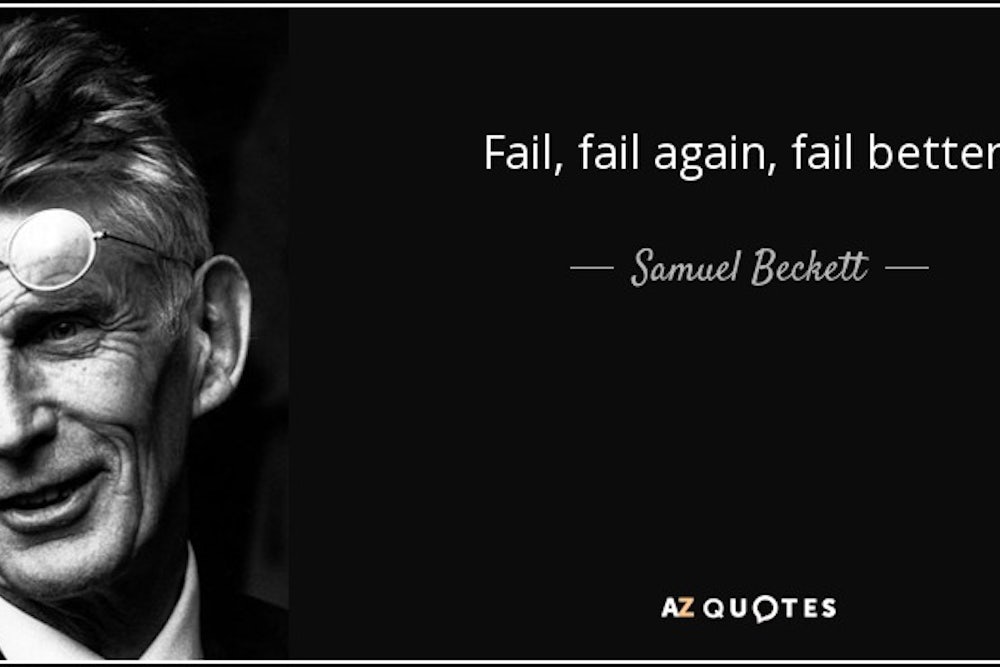Of the many offenses in Lionel Shriver’s now-infamous speech about cultural appropriation, it might be the most difficult to spot. No names are named, no insult given, except to the memory of one late-modernist Irish playwright. It comes toward the end, hardly noticeable as the reader tries to make sense of Shriver’s Catherine wheel–style of polemic, shooting in all directions and hitting everything in sight, from one-legged lesbians in Afghanistan to fictional Chinese characters who are too Chinese to the reviewer in The Washington Post who might have set this whole debacle off by calling Shriver’s newest book “racist.” But there it was, the last careless allusion in a speech that was full of them, gleaming like a soiled diamond in the rough: “The answer is that modern cliché: to keep trying to fail better.”
Yes, that modern cliché. It was only a couple of years ago that the people who turned the phrase “fail better” into a cliché—tech gurus, billionaire investors, and Liam Neeson, as Mark O’Connell enumerated in his definitive account of the phrase’s unlikely popularity—at least attributed the quote to the man who wrote it. Now it is merely part of the cultural ether, to be plucked for the purpose of encouraging people of all stripes to try, try again, to learn from one’s mistakes, to see hope where there should be none. As Stan Wawrinka, who won the U.S. Open earlier this month, and who boasts a tattoo of Beckett’s now-ubiquitous phrase on his left arm, explained to The Guardian: “It’s how I see life and tennis. The meaning of the quote doesn’t change no matter how well you do. There is always disappointment, heartache. You are losing almost every tournament. You need to just accept it and be positive because you are going to lose and fail. We’re not all Nadal or Djokovic, who can win most tournaments.”
This is not quite what Beckett meant when he wrote, in Worstward Ho, “Ever tried. Ever failed. No matter. Try again. Fail again. Fail better.” If I could hazard a guess, the point of the passage is that all life bends toward failure (i.e. death), that one goes on anyway because one has no choice (besides suicide, i.e. death), and that our various travails are different gradations, better or worse, of one overarching, monumental failure to overcome this condition (i.e. life). This is not to slam Stan Wawrinka, who seems like a very nice guy and is, of course, entitled to his own interpretation.
But in the meantime, as Beckett’s words occupy a no man’s land between authorial intent and total appropriation by the zeitgeist, it can be jarring to see them in pieces that are meant to be uplifting. As Roger Cohen recently wrote in The New York Times, in a column commemorating the 15th anniversary of 9/11:
The fires burned for weeks. The acrid sweet smell below Houston Street persisted. Papers from the towers fluttered across the East River toward Brooklyn. I picked one up and found on it — or did I imagine them? — these lines from Samuel Beckett: “Ever tried. Ever failed. No matter. Try again. Fail again. Fail better.”
In one sense, this is a noble response to terror. In another, well, that’s just grim.
